How Lisbon’s April 25 Carnation Revolution turned Portugal into the country you love today
Fifty years after Portugal’s fascist dictatorship was overthrown, the symbols of hope which inspired a revolt can still be seen around the city. Phil Davison talks to some of the key players who lived through the event, including the humble cleaner whose flowers helped usher in an era of democracy
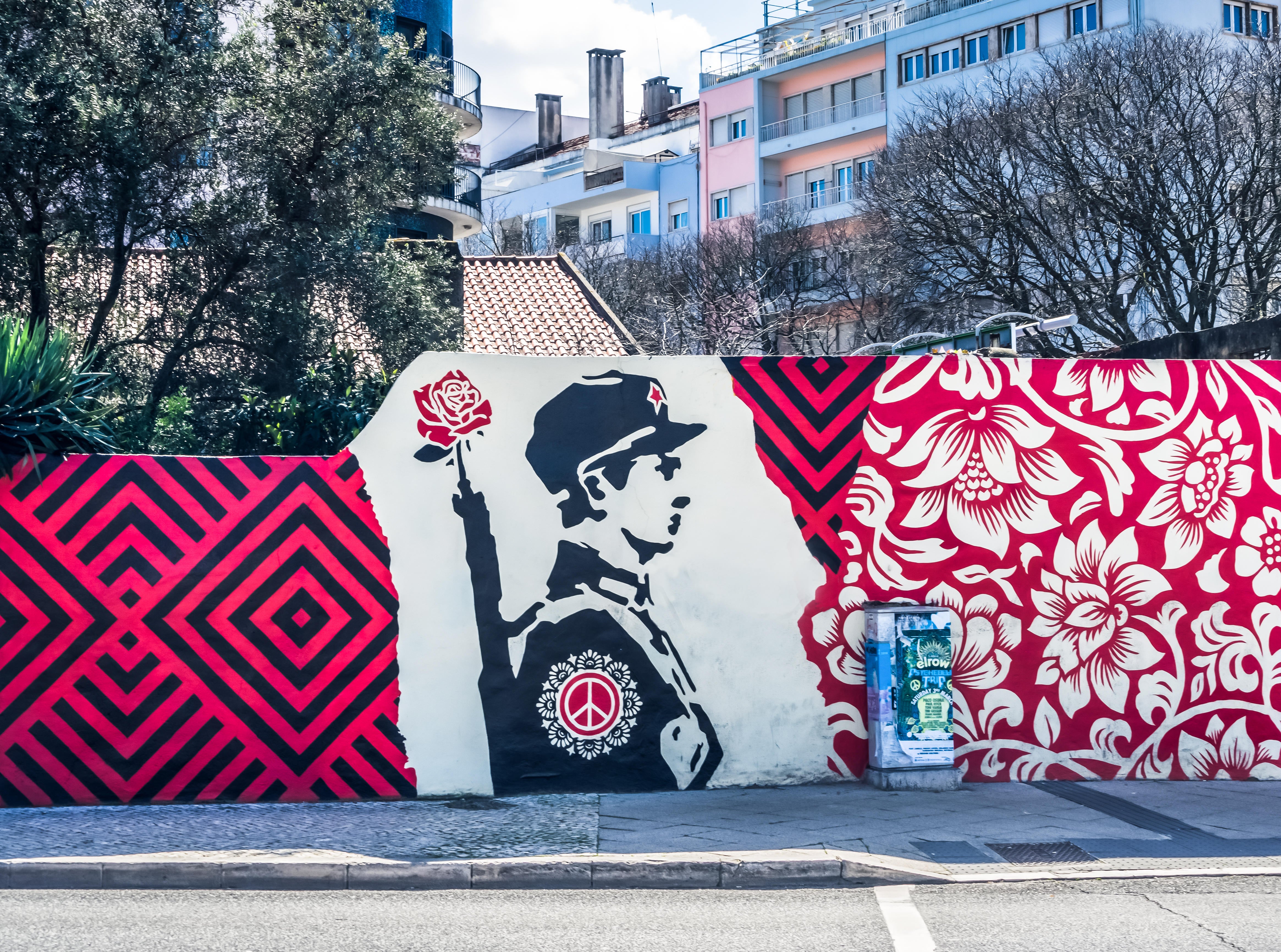
When 40-year-old cloakroom attendant and cleaner Celeste Caeiro arrived at the “Sir” restaurant on Rua Braamcamp in Lisbon on the morning of 25 April 1974, the owner told her: “Celeste, go home. Something’s going on. Take the carnations for your family. We don’t want them to go to waste.”
Caeiro, a single parent, was surprised. The self-service restaurant had been planning a first-anniversary lunch and dinner, with red and white carnations to be handed out to customers.
She had seen nothing unusual on her way to work but the owner had been listening to a private radio station and sensed something was in the air. Celeste took the bunches of carnations and headed home.
It was on Rua do Carmo when she first saw the column of army tanks rumble past and the thousands of cheering civilians who rushed out onto the streets to greet them.
Led by army captains Salgueiro Maia, Otelo Saraiva de Carvalho, Vitor Alves and Vasco Lourenco, they were on their way to oust the country’s dictatorship and restore democracy after more than 40 years of oppressive fascist rule and censorship.
One young soldier asked Celeste for a cigarette. She didn’t smoke – couldn’t afford to – so, instead, she gave him a red carnation, which he laughingly put in the muzzle of his rifle. Then other soldiers did the same. The driver of a Bravia Chaimite(armoured car) put a carnation in his vehicle’s cannon.
It was the perfect symbol for the almost bloodless revolution which was over by nightfall after prime minister Marcelo Caetano and his generals surrendered. This benign coup d’etat (the only deaths during the 25 April revolution were four civilians shot dead by secret police when they tried to get into their headquarters) became known as the Carnation Revolution and next week will mark its 50th anniversary.
Celeste became known as Celeste dos cravos (Celeste of the carnations) and, now 90, plans to walk down Lisbon’s Avenida de Liberdade on Thursday, a national holiday in Portugal.
Suffering from a heart condition, she won’t be able to walk the full 2km, so her daughter Helena and granddaughter Carolina will push her in a wheelchair for much of the way. She will be carrying bunches of red carnations, just as she did half a century ago.

Though never honoured by the Portuguese government, she remains a legend. You can see images of her carnations in guns peppered in street art across the city today, most famously captured by Shepard Fairey – the American artist behind Obama’s Hope poster – who painted this symbol of revolution in his iconic mural in Graca, one of Lisbon’s oldest neighbourhoods.
As the news spread that the coup had been successful, hundreds of thousands of Portuguese citizens appeared on the streets, shouting “Liberdade”.
Radio journalist Adelino Gomes, whose station until then had often been censored, was among them. He broadcast live, breathlessly, from the streets of Lisbon: “This is a fiesta. It feels like a huge stone has been lifted off people’s shoulders.
“There are hundreds and hundreds of people standing here along Rua Augusta, making victory signs, shouting ‘Down with fascism’ and clapping ... People are excited about what they still don’t quite know, but which they think is at least the end of more than 40 years of a regime that we’ve all unfortunately experienced, and the oppression that has often befallen us.
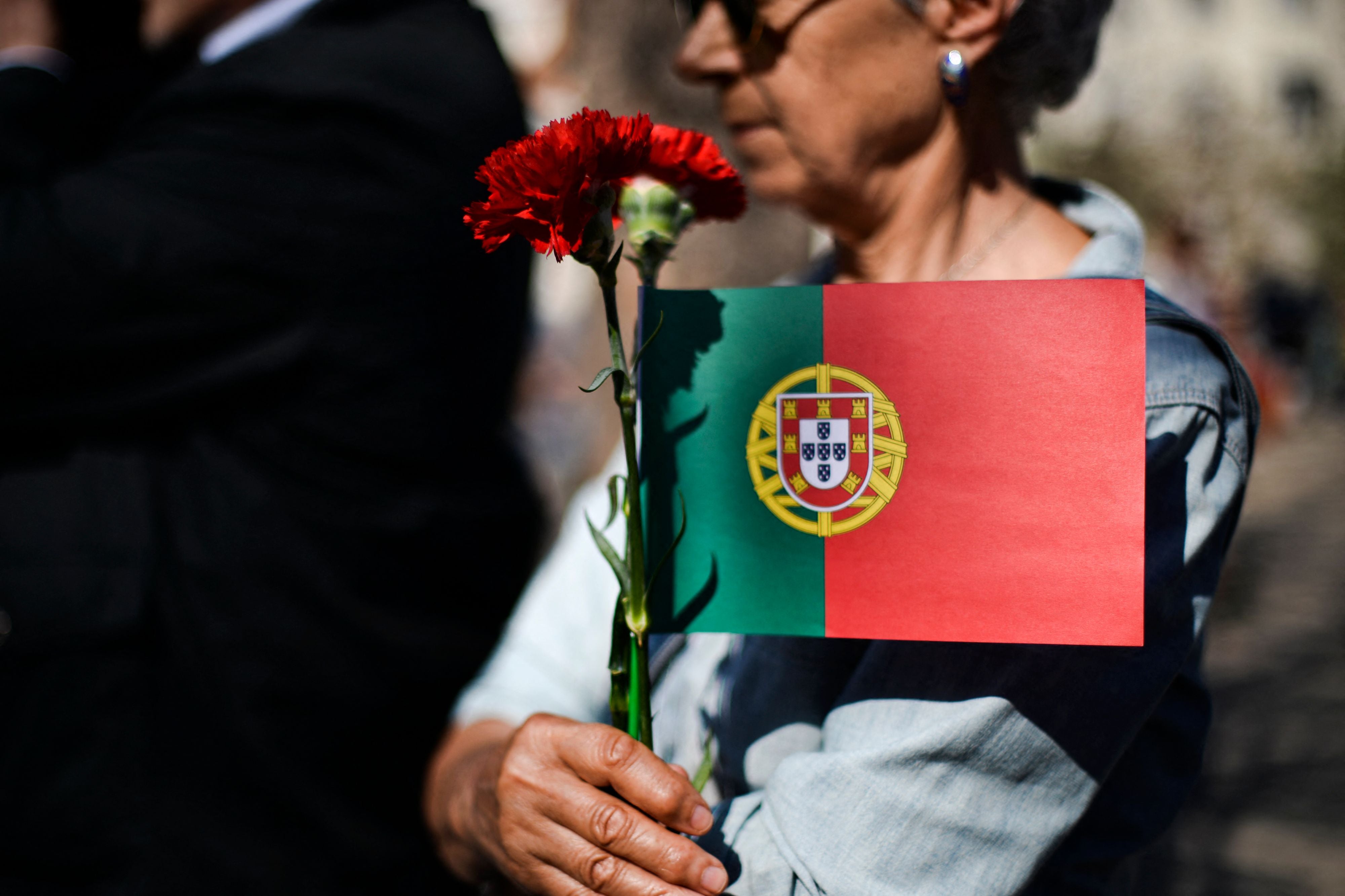
The young officers of the Armed Movement Force (MFA), who became known as “the captains of April”, had been waiting in their barracks on 24 April for a secret signal to mobilise. The first came at 10.55pm from a private radio station which played the song “E Depois do Adeus” (And After the Goodbye), Portugal’s entry in the 1974 Eurovision Song Contest.
The second, which was to tell the rebel soldiers to move onto the streets, came at 25 minutes past midnight when a news programme played the song “Grandola, Vila Morena” by the popular leftist folk singer José Afonso, whose music had been banned by the dictatorship’s official radio and TV.
After the romantic glory of the Carnation Revolution, Portugal went through a political rollercoaster. The MFA and the senior officers who had been behind Caetano’s dictatorship struggled to compromise.
Provisional governments came and went but negotiations immediately began with the independence fighters in the African colonies, all of which eventually gained their independence – Guinea Bissau, Cape Verde, Mozambique, Angola and Sao Tome and Principe.
Many young Portuguese men were fighting in those colonial wars, with almost every Portuguese family having someone involved. The unrest cost Portugal 40 per cent of its national budget – a key factor behind the coup.
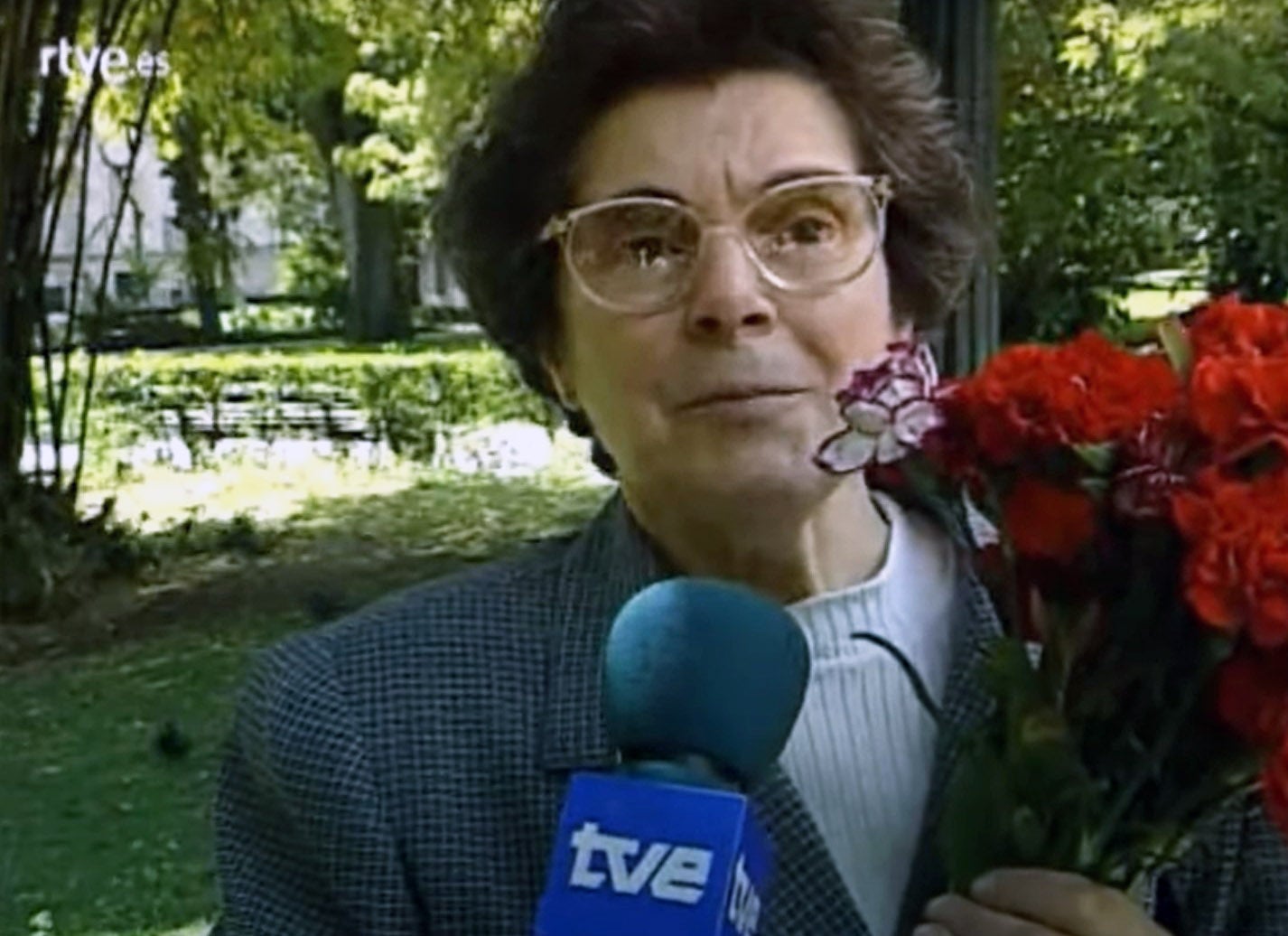
Independence brought an influx of Portuguese citizens from the former colonies. While it added to shortages of housing and other hardships created by the dictatorship, they brought with them a rich African culture which is very much alive today in the country’s music, art and cuisine.
The Carnation Revolution led to the first free democratic elections in Portugal held in 1976, with centre-left socialist Mario Soares becoming prime minister. He quickly initiated talks with the European Economic Community, later to become the European Union, and Portugal became a member on 1 January 1986. Unlike the UK, the Portuguese never looked back and, according to a poll by the European Commission last year, the Portuguese are the most proud (of all 27 nations) of being citizens of the EU.
The signs of the 1974 revolution are still everywhere in Lisbon, from the names of the streets to the vibrant creative scene – and of course even the name of its famous red bridge, Ponte Abril 25. Fifty years on, the whole city pulses with the celebration of liberation.
Even the younger Portuguese crowd, born after 1974, have great respect for the Carnation Revolution. Walk the streets, go into bars, you can feel it. Few here take their freedom for granted. The ghost of dictatorship still haunts them.
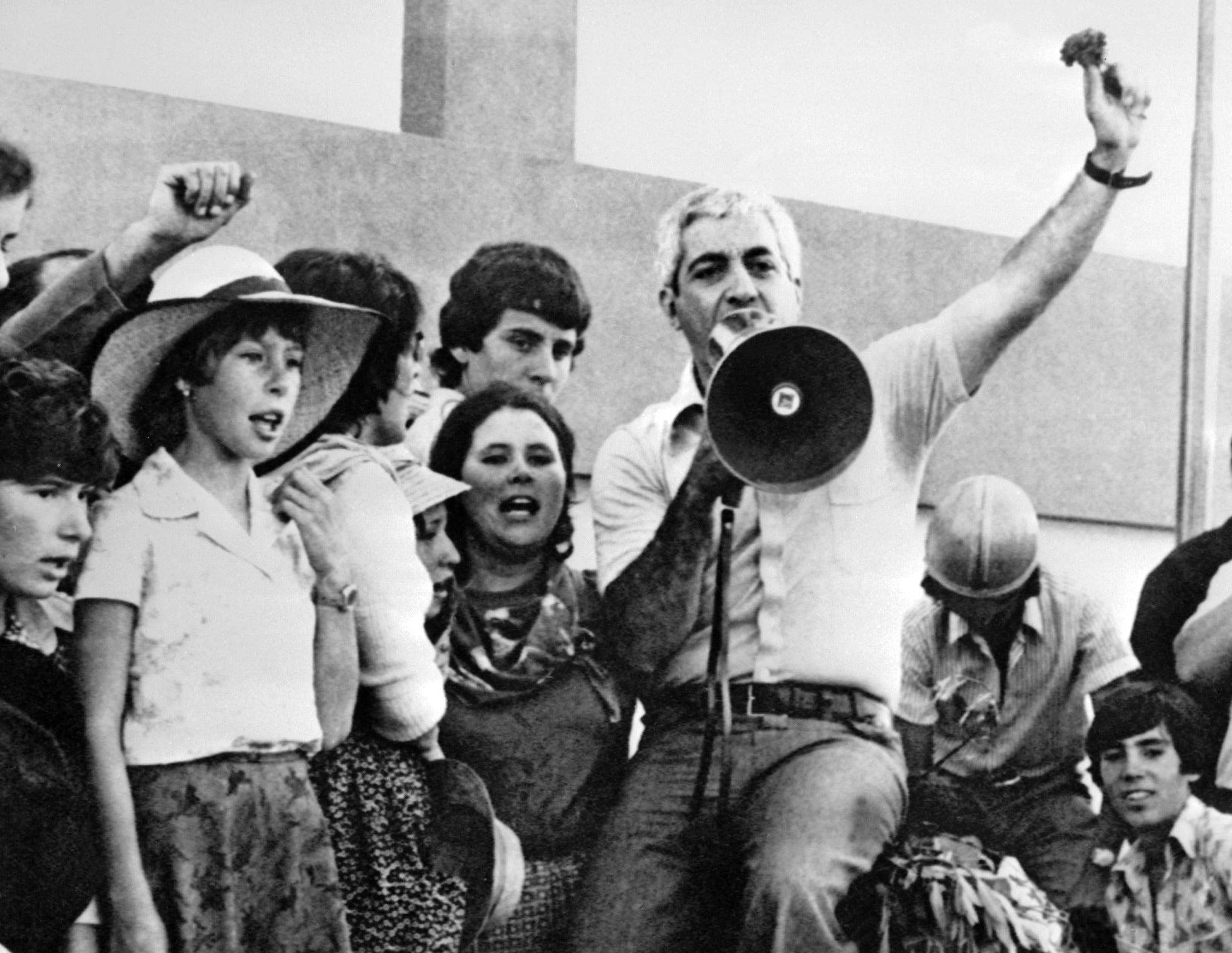
If you are looking for a deeper dive, watch the film As Armas e a Revolucao (The Arms and the Revolution) which incorporates footage of 25 April 1974, shot by film directors who were on the streets that day and also from students and others using small cameras in the days before mobile phones.
Maria Augusta Goncalves was an 11-year-old schoolgirl in 1974. Now a senior journalist with the Portuguese national news agency Lusa, she tells The Independent: “The men behind the Carnation Revolution were open to the world. They were the post-Second World War generation, they knew about Korea and Vietnam.
“After the revolution, the first new laws brought citizenship for all, universal civil rights, freedom of the press and expression, universal vote to people from 18, political parties were legalised, and elections were planned. Democracy was under way.”
Its leaders planned, from the first moment, to give power to civilian society. That’s what happened. Municipalities/city councils got power and autonomy. And the country could solve problems that dictatorship would never solve – new infrastructures, water supply, energy, sanitation.
Social security became universal, the National Health Service was implemented and, for the first time, public education became open to all. New universities were founded. As one person told me, “the hard misery of the dictatorship has disappeared”.
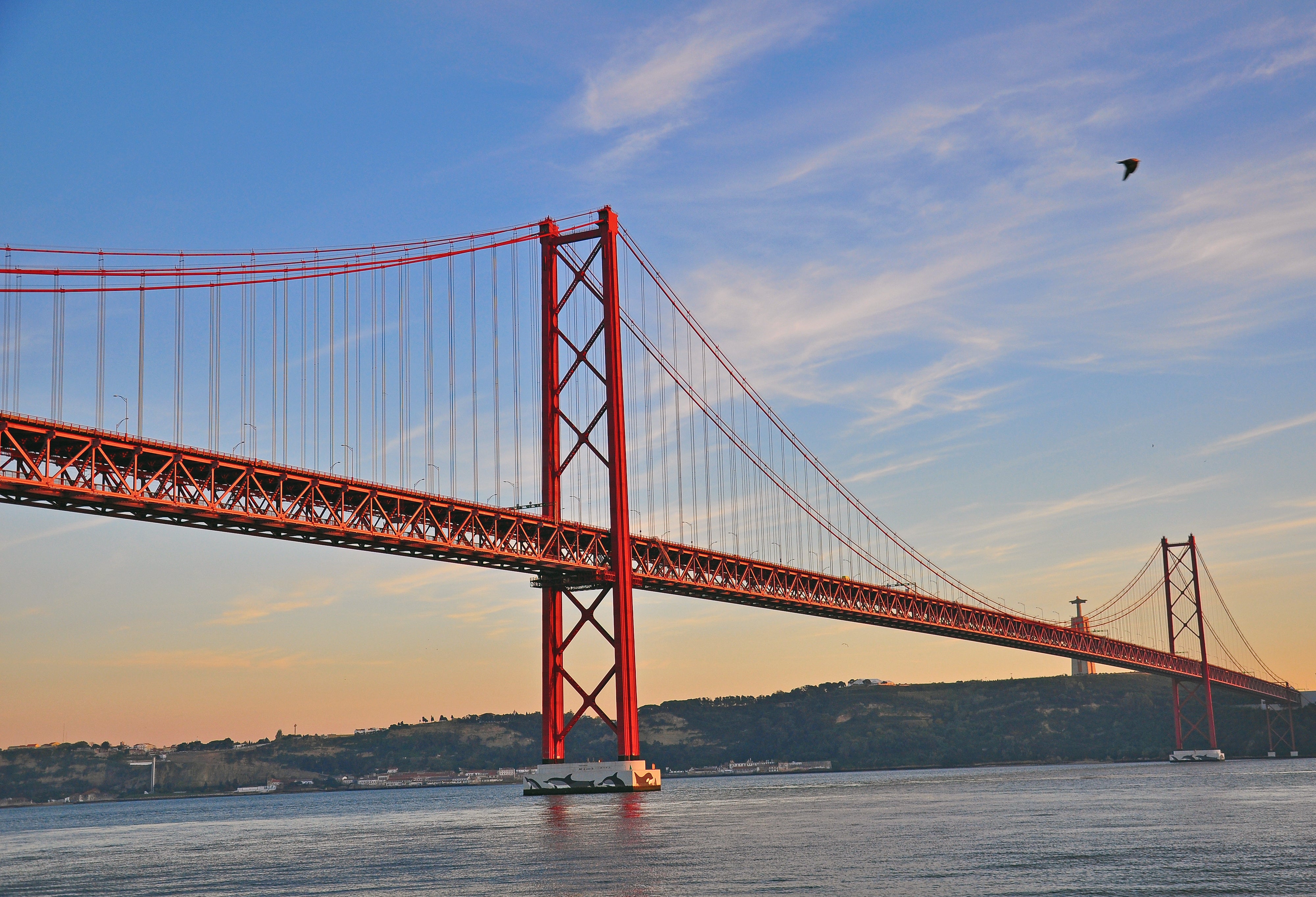
After the revolution, successive Portuguese governments pushed tourism, cashing in on the pleasant climate and beautiful beaches.
But those governments increasingly built houses, and resorts, for tourists rather than for local Portuguese. Many are asking why recent administrations seem to spend more to accommodate foreigners than they have done to house their own people.
It is one reason why, as in the UK and the US, Portugal is now faced with a surge in far-right populist parties, notably the Chega party. For older Portuguese citizens it’s an alarming reminder of the rhetoric of the dictatorship of Caetano and his predecessor Antonio Salazar.
As for Celeste Caeiro, she is proud of her role as an accidental revolutionary 50 years ago. On Thursday, one of the chaimites to first receive her flowers 50 years ago will take part in the celebrations along Liberty Avenue; Celeste hopes once again to place a fresh red carnation in the muzzle of its cannon.
She won’t be able to reach it, so her 23-year-old granddaughter Carolina will place it for her.
Carolina, along with her mother and her grandmother, will then shout the revolutionary slogan which has become so common that it doesn’t even need to mention the exact date.
“Abril sempre!” (April forever!)






Join our commenting forum
Join thought-provoking conversations, follow other Independent readers and see their replies
Comments